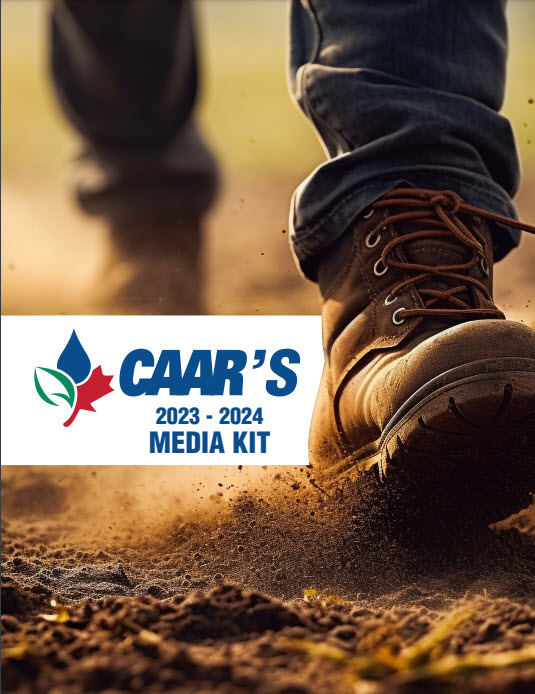CAAR’s executive director Mitch Rezansoff recently attended three days of meetings in Ottawa on the future of fertilizer. The CFIA’s Fertilizer Workshop, Fertilizer Canada’s Fertilizer Products Forum and The Fertilizer & Supplement Advisory Committee’s first annual conference.
The CFIA Fertilizer Workshop covered the registration process for new fertilizers, including many which Rezansoff says are “not fertilizers at all.” The first wave of fertilizer enhancers saw nitrification and urease inhibitors enter the market. Now, Rezansoff says the CFIA is receiving submissions for products including biostimulants, enzymes and more including a mix of synthetic and naturally occurring macro and micronutrients.
As well, he says many products are coming down the pipeline that use composted and recycled material, a trend he finds encouraging.
“It’s good to see that there is a lot of composting and recycling of nutrients from products that would traditionally end up in the landfill,” says Rezansoff. “Manufacturers are finding more ways to either extract nutrients or compost it and put into a formulation that can be readily used by farmers and agriculture.”
Read more on this topic in The Communicator’s story, “A Circular Solution,” about how alternative fertilizers are being put to use across Western Canada. Online and in your mailbox, the first week of February, 2020!
Rezansoff reminds retailers that many of these newer products discussed at the workshop, while reviewed by the CFIA, are not subject to efficacy testing before registration. “It is buyer beware,” says Rezansoff.
Click here to read “Making Buyers Aware” from The August 2018 Communicator on how some CAAR Members companies are conducting their own efficacy testing on fertilizer products.
Fertilizer Canada Products Forum and Fertilizer & Supplement Advisory Committee
Some of Rezansoff’s main takeaways from the 2020 Fertilizer Products Forum were on the results of the 2019 Fertilizer Use Survey, including the role an agronomist plays with fertilizer and nutrient decisions. In terms of influence, independent professional advisors took the top spot, followed by professional advisor associated with a retailer or manufacturer, followed by agri retailers and sales reps.
The full survey is available through Fertilizer Canada.
Finally, Rezansoff attended the first meeting of the Fertilizer & Supplement Advisory Committee, an industry-government consultative body, working with the CFIA and industry to develop a best-in-class regulatory environment for Canadian fertilizers and supplements.
The new group has membership that includes inoculant manufacturers, micronutrient companies, plant nutrition companies and many more.
Watch for the April 2020 issue of The Communicator to read more on updates from these meetings and how the content is relevant for CAAR members.
Related Articles
- Precision Technology for Fertilizer Mixing & Blending Precision agriculture is everywhere, even in fertilizer mixing and blending systems, where automated systems and software-based systems are quickly becoming a crucial element to the industry. (Sponsored Content) N...
- Canadian fertilizer and the new insect and lightning alternatives Could lightning-derived technology or cricket frass be a new fertilizer option for manufacturers? By Andrew Joseph, Editor It’s spring, a time when crop farmers and retailers think profoundly about fertilizer—the...
- Sollio Agriculture opening new plant in Ontario In Mid September, Solio Agriculture inaugurated CRF Agritech in St. Thomas, Ontario. CRF stands for controlled-release fertilizer. The project was launched in 2021, and required an investment of over $25 million. ...
- Great expectations Canadian predictions for corn, soybeans, and wheat and the dickens of a time it may have as it plays out against the complex machinations of a global background. By Andrew Joseph, Editor Canadian agriculture has...
- 2024 Crop Input Market Predictions for Canada According to FCC, despite the backdrop of 2023 droughts and global issues, Canada's 2024 crop input market faces diverse challenges. Here’s a brief on what to expect. The Canadian agricultural scene is buzzing wit...
 How to resolve AdBlock issue?
How to resolve AdBlock issue? 


Join the discussion...
You must be logged in as a CAAR member to comment.
Report
My comments